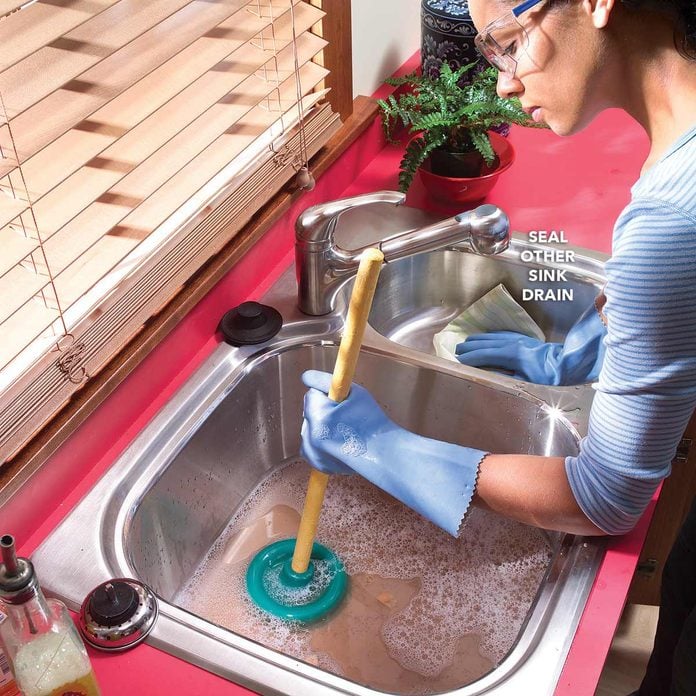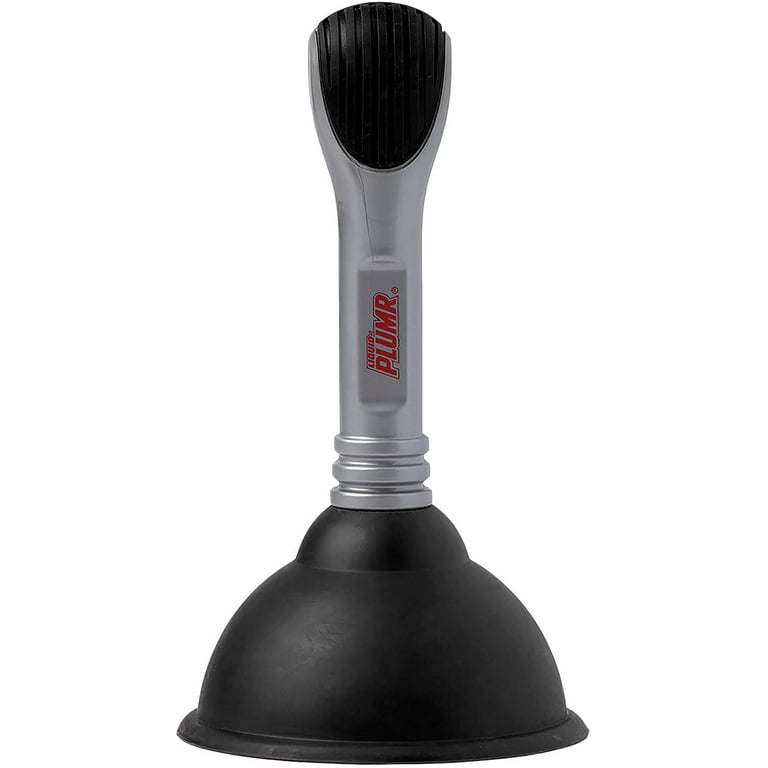Improving Plunger and Drain Cleaners: Pro Techniques
Improving Plunger and Drain Cleaners: Pro Techniques
Blog Article
Right here below you might get a good deal of helpful points pertaining to A Guide to Plungers (and How to Use Them).

Intro
Proper maintenance of house drains is necessary for preventing blockages and making certain smooth water flow. One of the secret tools in every homeowner's toolkit is the plunger, along with various drain cleansers developed to take on stubborn obstructions successfully. This article discovers how to utilize plungers and drain cleansers efficiently to maintain your drains streaming openly.
Section 1: Recognizing Bettors
Kinds of Plungers
There are a number of sorts of plungers readily available, each designed for various kinds of drains pipes and blocks. The most typical kinds include mug plungers, flange plungers, and accordion bettors.
Exactly How Plungers Job
Plungers work on the concept of creating stress and suction to remove obstructions. When appropriately applied over a drainpipe, they create a vacuum that can take out debris or separate blockages.
Selecting the Right Bettor
Selecting the ideal bettor depends on the sort of drain and the nature of the obstruction. Cup bettors are excellent for sinks and tubs, while flange bettors are better matched for toilets as a result of their design.
Usual Mistakes with Bettors
Avoiding these errors ensures reliable plunging: incorrect seal around the drain, not enough force, and unclear surrounding particles.
Section 2: Making Use Of Plungers Successfully
Preparation
Prior to plunging, make sure the plunger covers the drain entirely and develops a limited seal. Clear any noticeable particles around the drain opening.
Strategy
Begin with mild plunging movements to build suction. Boost pressure progressively, utilizing a constant rhythm. Repeat as needed till the drain clears.
Troubleshooting Tips
If plunging does not function, attempt changing the seal, applying oil jelly for a far better seal, or making use of a various kind of plunger.
Area 3: Comprehending Drain Cleaning Company
Sorts Of Drain Cleaning Company
Drain pipes cleaners can be chemical or chemical. Chemical cleaners use solid chemicals to dissolve blockages, while enzymatic cleansers use all-natural enzymes to break down organic matter.
Just How Drainpipe Cleaners Work
Chemical cleansers respond with blockages to dissolve them, while enzymatic cleansers break down organic materials like hair and oil without damaging pipes.
Safety Factors to consider
Constantly wear handwear covers and eye security when using chemical drain cleansers. Guarantee ample air flow and follow supplier instructions carefully.
Eco-Friendly Alternatives
Take into consideration using vinegar and cooking soda or enzyme-based cleansers for environmentally friendly alternatives that are safer for pipelines and the setting.
Section 4: Making Use Of Drainpipe Cleaners Successfully
Application Techniques
Pour chemical cleaners straight right into the drain opening. Allow them to help the recommended time before flushing with hot water. Chemical cleansers need to rest over night.
Precautions
Avoid blending various types of cleansers, as this can create toxic fumes. Never ever utilize chemical cleansers combined with a plunger, as spilling can occur.
Taking Care Of Stubborn Obstructions
For consistent obstructions, consider making use of a plumbing snake or calling a specialist plumbing to avoid damages to pipes.
Final thought
Finally, understanding how to utilize bettors and drain cleaners properly is necessary for preserving healthy pipes systems. By choosing the right devices and techniques, home owners can deal with small blockages and protect against significant pipes problems down the line.
How To Properly Use A Plumbing Snake To Clear Drains
When any drain clogs in our home arise, we tend to gravitate toward the plunger and little else. In cases where the plunger and its vacuum-created pressure are not able to clear clogs, many immediately move to harmful chemicals or simply call their plumber to fix the issue.
we’re happy to help with all drain cleaning needs and concerns. This includes informing you on a few other home remedies you may have at your disposal for minor to moderate clogs, one of which is the use of a plumbing snake. Many people have never used one of these before – let’s go over the steps to take when your drain clogs and you have a plumbing snake available.
Attempt Plunger Use
The first step here, as we noted above, should indeed be to grab your plunger when you notice a drain clog and attempt to resolve it this way. If you’re unsure how to use a particular type of plunger, our plumbers can answer any questions you have. If this doesn’t do the trick, however, you move on to the snake.
Locate And Prepare Snake
A plumbing snake is a metal or plastic device that’s generally about a quarter of an inch thick. It’s design with significant extensions, meant to reach down into your clogged drain and push the clog out. Snakes also contain drain augers that will latch onto and push stubborn blockages.
If your plunger doesn’t clear a clog, locate your snake and bring it to the drain in question. We also recommend keeping a bucket nearby to collect the clog once you pull it out, plus we’d advise wearing goggles and possibly protective gloves.
Feed Snake
Once you’re ready to go, feed the snake slowly down the drain, using the crank device it comes with to keep it moving until it finds the clog. Once this happens, much of the clog will be latched onto the coil so you can pull it out, while the rest will simply break up and flow downward.
Detach Debris
Remove the snake slowly from the drain, and once you’ve done so, pick off any debris that’s stuck to the coil. This is another area where wearing gloves is a must.
Flush Drain
Finally, take a few minutes to ensure the snake has done its job correctly. If you’ve been using it on a toilet, flush the toilet a couple times and make sure everything flows well. If you’ve used it on a different drain, flush it with some room temperature water.
https://www.mybuddytheplumber.com/blog/how-to-properly-use-a-plumbing-snake-to-clear-drains/

Application Techniques
Pour chemical cleaners straight right into the drain opening. Allow them to help the recommended time before flushing with hot water. Chemical cleansers need to rest over night.
Precautions
Avoid blending various types of cleansers, as this can create toxic fumes. Never ever utilize chemical cleansers combined with a plunger, as spilling can occur.
Taking Care Of Stubborn Obstructions
For consistent obstructions, consider making use of a plumbing snake or calling a specialist plumbing to avoid damages to pipes.
Final thought
Finally, understanding how to utilize bettors and drain cleaners properly is necessary for preserving healthy pipes systems. By choosing the right devices and techniques, home owners can deal with small blockages and protect against significant pipes problems down the line.
How To Properly Use A Plumbing Snake To Clear Drains
When any drain clogs in our home arise, we tend to gravitate toward the plunger and little else. In cases where the plunger and its vacuum-created pressure are not able to clear clogs, many immediately move to harmful chemicals or simply call their plumber to fix the issue.
we’re happy to help with all drain cleaning needs and concerns. This includes informing you on a few other home remedies you may have at your disposal for minor to moderate clogs, one of which is the use of a plumbing snake. Many people have never used one of these before – let’s go over the steps to take when your drain clogs and you have a plumbing snake available.
Attempt Plunger Use
The first step here, as we noted above, should indeed be to grab your plunger when you notice a drain clog and attempt to resolve it this way. If you’re unsure how to use a particular type of plunger, our plumbers can answer any questions you have. If this doesn’t do the trick, however, you move on to the snake.
Locate And Prepare Snake
A plumbing snake is a metal or plastic device that’s generally about a quarter of an inch thick. It’s design with significant extensions, meant to reach down into your clogged drain and push the clog out. Snakes also contain drain augers that will latch onto and push stubborn blockages.
If your plunger doesn’t clear a clog, locate your snake and bring it to the drain in question. We also recommend keeping a bucket nearby to collect the clog once you pull it out, plus we’d advise wearing goggles and possibly protective gloves.
Feed Snake
Once you’re ready to go, feed the snake slowly down the drain, using the crank device it comes with to keep it moving until it finds the clog. Once this happens, much of the clog will be latched onto the coil so you can pull it out, while the rest will simply break up and flow downward.
Detach Debris
Remove the snake slowly from the drain, and once you’ve done so, pick off any debris that’s stuck to the coil. This is another area where wearing gloves is a must.
Flush Drain
Finally, take a few minutes to ensure the snake has done its job correctly. If you’ve been using it on a toilet, flush the toilet a couple times and make sure everything flows well. If you’ve used it on a different drain, flush it with some room temperature water.
https://www.mybuddytheplumber.com/blog/how-to-properly-use-a-plumbing-snake-to-clear-drains/

As a passionate reader about How to Use a Plunger to Unclog a Toilet or Drain, I imagined sharing that excerpt was important. Sharing is nice. Who knows, you may be helping someone out. Thanks so much for taking the time to read it.
Call Today Report this page